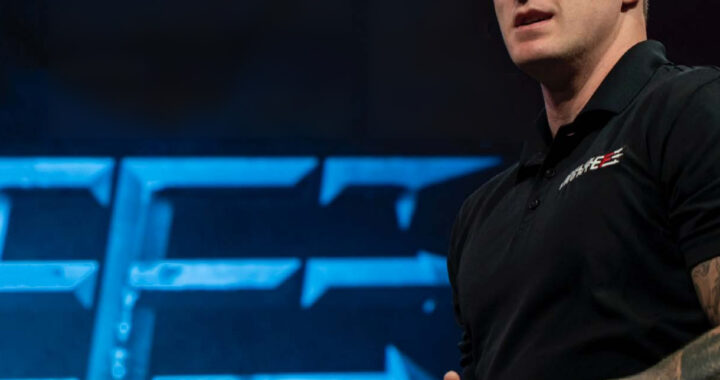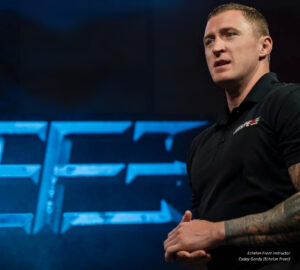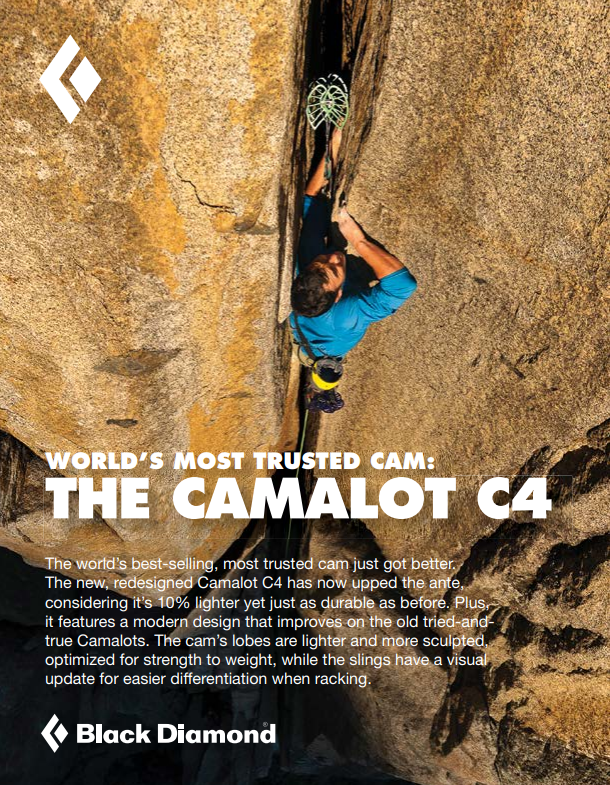Rick Lindfors – Meridian Editor in Chief
The March 2022 Fourth Thursday session brought in Codey Gandy, an instructor with Echelon Front. Former Navy SEALs Jocko Willink and Leif Babin started Echelon Front to bring their lessons learned from combat and apply them to the private sector. Willink and Babin were commanders in Task Unit Bruiser, a highly decorated special operations team in Ramadi, Iraq. The leadership philosophy centers around the concept of Extreme Ownership, where leaders are responsible for all things that affect the outcome of their mission.
Codey Gandy spent five years in the Marine Corps serving in various enlisted leadership positions. Part of his job at Echelon Front is being the training lead for first responders. Gandy’s presentation hammered home the idea that improving leadership at all levels of an organization can improve the outcomes of your mission. He also took time for a question and answer session that brought up valid points for MRA teams.
Overview
Echelon Front’s leadership teachings involve what they call the four laws of combat. Those are Cover and Move, Simple, Prioritize and Execute, and Decentralized Command. Cover and Move is another way of emphasizing teamwork. Teams need to work together and provide resources to each other in order to accomplish a mission. Teams also need to make sure they have relationships that allow them to effectively communicate and operate together. Simple means just that – your plans and assignments need to be easily understood by your team. Communication needs to be clear, concise and simple in order to effectively convey the assignments. The goal must always be communicated. If leaders are concerned that a team or team member isn’t clear on a task, they need to follow up in order to make sure the message is effectively conveyed. That can include having a team member read back their part of an assignment to make sure they have things nailed down. Prioritize and Execute translates to leaders needing to arrange tasks in the order of importance during an assignment and designate resources to accomplish them. Leaders also need to make sure they are in a position where they can take a bird’s eye view of the situation they’re in to analyze what’s happening around them and make decisions. Decentralized Command means that every person on a team is a leader for the task that they are meant to accomplish. In an MRA team on assignment, a rescue team can be viewed as team members who are in charge of certain responsibilities (rigging, patient care etc.) and have the autonomy to accomplish those tasks. Understanding the ‘why’ behind an assignment is crucial to a team’s accomplishment of a task and working their way around any challenges.
Question: How do we break down silos within our team that existed for a long time? Example: We have cliques on our team that have existed for a long time and it makes it challenging for new members of different backgrounds and genders to feel like they’re part of the team.
Gandy: There’s a couple of different avenues here. One, it’s on the leadership to identify [these issues]. If I have cliques on my team an I have new members that aren’t getting onboarded properly, that aren’t getting the attention that they need, it’s not what you preach it’s what you tolerate. If I have team members that are ignoring, blasting new people, that’s not okay. You have to let them know that’s not okay. That makes for a cancerous environment where people aren’t going to want to work together in a dangerous setting. That’s the leadership’s problem. Two, if I’m a new member on my team, I have the opportunity to build relationships with these new people; I want that to be a priority. And all that takes is taking the time, understanding that “look I’m new, I know there’s a right or passage to make it into this team,” or whatever the case may be, but you have to be humble, you have to remove the ego. That is typically why we don’t want to build relationships. It’s because of our ego. Humility is the number one characteristic of a great leader, and when we lack humility, when we have a big ego, it can be easy for us to say “I don’t need to build a relationship, it doesn’t make sense for me to build a relationship […] If something is already existing when it comes to those cliques, that’s [the responsibility of] the leadership. You have to create the culture where “hey, that’s not okay, that’s not what we do here.” You have to set the standard, you have to hold the line. There are some things you have to hold the line on, some we can almost let slide in terms of “is this mission critical or is it not?” Something like [cliques] is mission-critical because when you have an environment where people don’t feel safe because of the relationships they do or don’t have, that can be detrimental when you’re out doing your job.
Question: How do you balance confidence and ego? We want to develop confident rescuers on our teams but sometimes we develop egos because we have been able to deliver on rescues. We want to maintain our confidence but check our ego.
Gandy: Ego isn’t necessarily a bad thing, it’s when ego gets out of control is when we start to make the wrong decision. Ego actually puts us on the path of having confidence in terms of being proud and doing the right thing. When ego gets out of control, that is when we start to plateau. If my ego is so big to where I know everything that there is to know, that is when we lack humility. When that happens, complacency happens and as you know
complacency kills. When things go wrong, when people make mistakes, what it stems back to is a lack of leadership, lack of training and complacency. So to balance confidence and ego, understand that if you’re to a point where you’re not striving to get better every single day in some capacity, then you’re wrong. We’re at war with complacency every single day, especially for what you guys do. You have to do a self assessment, and that’s hard. Self assessment is just the ability to look in the mirror and be like “Did I do everything in my power to get better today? Did I set up my team for success?” I think self accountability is the hardest thing in the world. Why? Because we justify our actions with excuses. And typically they’re actually good excuses. I almost have four kids, I have a lot of good excuses but they’re still excuses. So you have to have the ability to come up with accountability and how it looks within an organization […] Accountability will help you combat ego. Confidence is good, over-inflated ego is bad.
Question: We are all volunteers […] how do we encourage people to perform at their highest level when sometimes they say “we’re just volunteers, if you go hard on us, we’ll quit.” Some people are not highly motivated and driven, so how do you get your organization culture to shift into a more professional SAR volunteer mode.
Gandy: What does every single person in the world want? They want control over their own destiny. And traditionally why people push back, why they don’t want to be part of the program, [is because] they don’t have any buy-in. So what do you do? You give them buy-in, give them ownership, let them be in charge of things. Now, don’t let them be in charge of crappy tasks. Let them be in charge of the planning, let them be in charge of the debriefs. It is really hard to complain when you are in charge of the program. That’s how you encourage people to be part of the program – you make them part of the program. Now that can be tough because it’s volunteers and you have full-time people and you’re trying to balance that, so you have to balance in terms of giving everyone that equal opportunity to have some buy-in. The more buy-in, the more ownership that you have in terms of your people, the better off they’re going to be.
Final note from Gandy: It’s actually all on you, but it’s not about you. It is actually about the team. And that can be tough. Because if you take these principles, you take extreme ownership and you use it to better your position, then I have failed as an instructor. The unique thing about this is these principles, they are for your team. They are for your organization to be successful. Is there some benefit to you using them as a person? Yes, but that’s not the primary. The primary component of this is for your team to be successful. It can be hard, because a lot of these things are simple, not easy […] You’re fighting against human nature. It is in our DNA as humans to blame other people […] It is uncomfortable to take ownership of the mistakes we make; it hurts our pride, it hurts our ego. Simple, not easy, but are they worth it in the end? Absolutely. Because if we want change in our organization […] the answer is the laws of combat and extreme ownership.
“When you care more about your team winning than you winning yourself, that is when you start to become a true leader.” – Jocko Willink
I often get the question “what makes a great Navy SEAL, what makes a good marine, what makes a good police [officer], firefighter, rescue operator?” What makes the best teammate is putting the mission first. Putting the mission first, putting the team first, putting the other individual first and putting yourself last. But that can be hard. But it can be done with the tools you have learned.
Editor’s note: Gandy’s presentation was recorded and sent as a private link to MRA members in a March 29 email. It is highly recommended viewing. All MRA teams and members should take time to see where they can improve leadership within their organization and at their personal operating level. Willink and Babin’s first book, “Extreme Ownership,” is immensely popular. The follow-up book “The Dichotomy of Leadership” is one of my favorite books on the topic. There are a variety of other resources and experts on leadership that can be reviewed and consulted. Any step towards better leadership within yourself and your organization is the right step.
Gandy – Echelon Front instructor Codey Gandy (Echelon Front)




